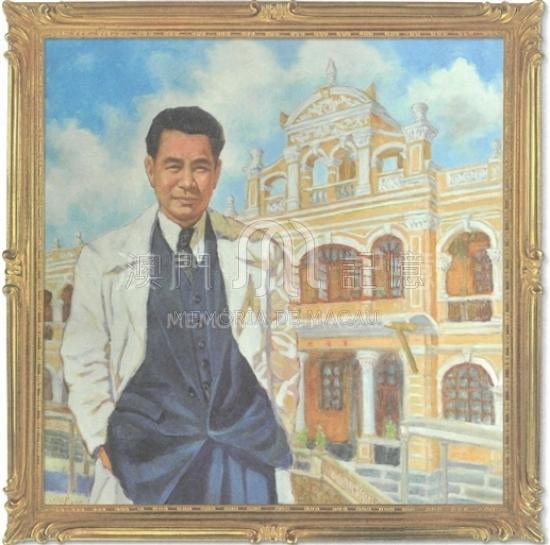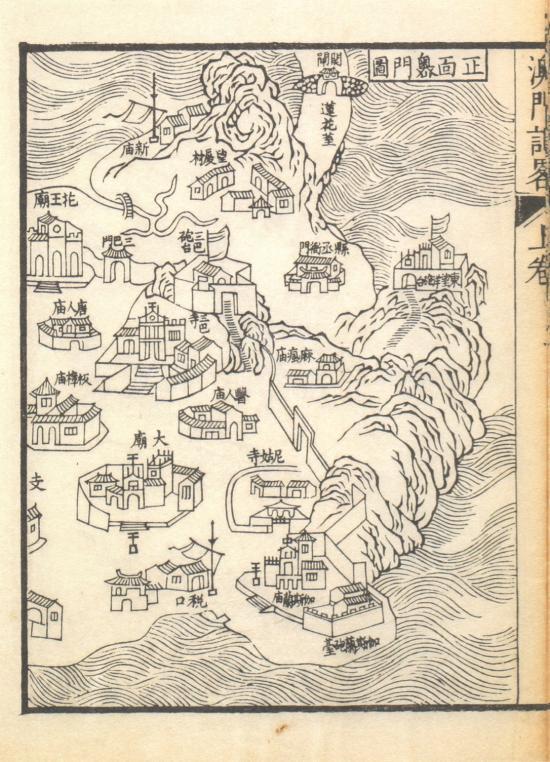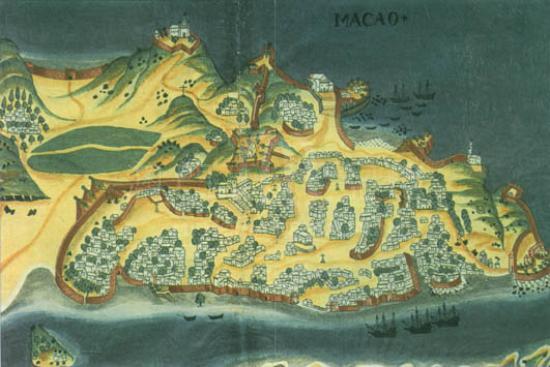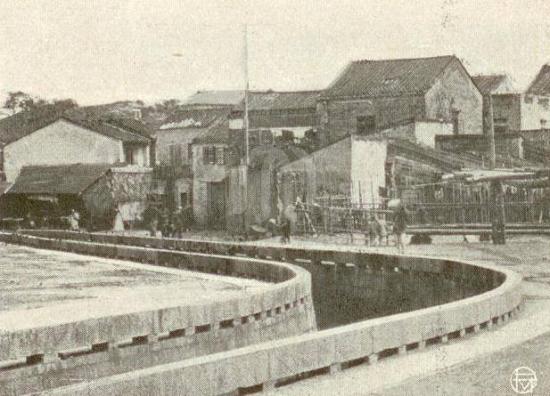Two scale bars note respectively above and below the right-hand margins of the map. The two pictures above and below the left-hand margins of the map are symbols of Genoa City. Therefore, it is assumed that the map derived its name from the city where the map maker lived, Genoa. Its rhumb line reflects the influence of nautical charts. In the map, there are notes in Latin, and also drawings of castles, persons, elephants, and lions, etc. The mapmaker referred a lot to the works of the 2nd century AD geographer Ptolemy, but he refused to accept it blindly. For example, Ptolemy believed that there was a massive land on the south of the Indian Ocean, which bridged Africa and the East Asia, while on the contrary there is no area on the southern edge of the Indian Ocean in this map. Many other references are from works of Italian traveler Marco Polo (1254-1324) and Italian businessman Niccolo da Conti (ca. 1395-1469). In the map, three place names are related to China. The first one is Cathay, which was the name of the Northern area of China called by Europeans in the Middle Ages, deriving from the sound of “Khitan.” The second one is Sine, another name of China among western Europeans from the middle period of the 1st Century AD. The third one is Macina, which was the name of China called by Old India, Persia, Arab and Southeast Asia, etc. The names from different sources coexist on one map, showing vividly that Europeans were still confused at the understanding of the East before the Age of Discovery. Just with such background, Europeans ushered the gate of the east in the Age of Discovery.
Copied from Harvard University Library, the duplicated copies of the Genoese World Map was reproduced by Hispanic Society of America and the American Geographical Society of New York in 1912 (G3200 1457 .G4 1912).
Reference:
[1]. Yūsuf Kamāl,. (1926-51). Monumenta cartographica Africae et Aegypty. Le Caire.
[2]. Stevenson, E. (1912). Genoese world map, 1457, facsimile and critical text incorporating in free translation the studies of Professor Theobald Fischer, rev. with the addition of copious notes,. New York: [The DeVinne press].
[3]. 龔纓晏, 茅憶年. (2007). 橄欖形的世界:1457年熱那亞世界地圖. 地圖, 01.
Informações relevantes
Data de atualização: 2019/08/05











Comentários
Comentários (0 participação(ões), 0 comentário(s)): agradecemos que partilhasse os seus materiais e histórias (dentro de 150 palavras).